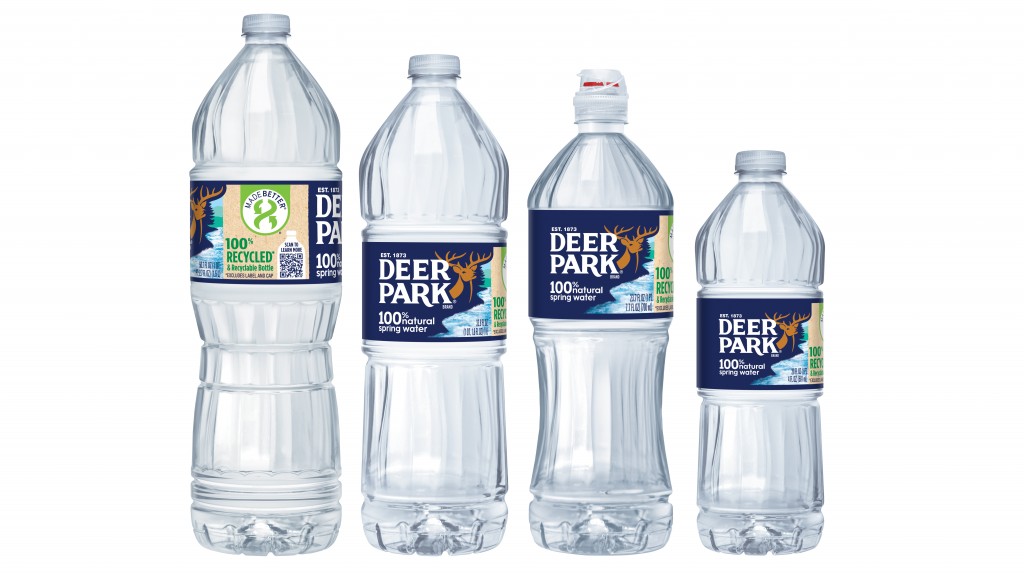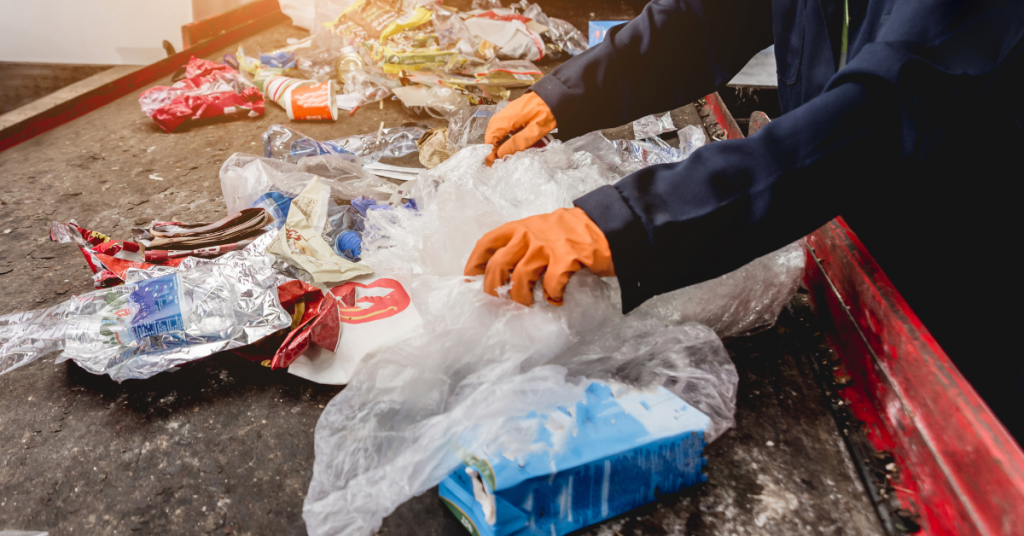Nestlé Waters North America to use 100% recycled plastic in three additional brands

Three more of Nestlé Waters North America's U.S. domestic still water brands have started to convert their packaging to 100% recycled plastic.
Ozarka Spring Water, Deer Park Spring Water and Zephyrhills Spring Water packaging, which has long been 100% recyclable, will now be both 100% recyclable and made from 100% recycled plastic. With the expansion of recycled plastic (rPET) to these brands, nearly 60% of all households in the U.S. will have access to one of the regionally distributed spring water brands in bottles made entirely with recycled plastic.
"We have made significant strides on our journey to use more sustainable packaging," said David Tulauskas, Vice President and Chief Sustainability Officer of NWNA. "Bottles made with other bottles - like these - provide tangible proof that recycling works and the circular economy for plastics is achievable. By using recycled plastic, we are breathing new life into existing materials, reducing the need for new plastic and our carbon footprint, and supporting the 757,000 jobs in recycling and reuse activities in the U.S."
The packaging conversion for these three brands means that NWNA has now doubled the amount of rPET used since 2019 across its U.S. domestic portfolio to 16.5%. This step brings the company closer to achieving its goals of using 25% rPET across its U.S. domestic portfolio by 2021 and 50% rPET by 2025. By accelerating the use of rPET in its bottles, NWNA is making the shift from virgin plastic to recycled plastic and helping to create an end-market for sustainable rPET. Using recycled plastic can help keep it out of landfills, waterways and oceans, and reduces greenhouse gases by 67% compared to using new plastic
To help consumers identify the new rPET bottles, all three brands will include a new message on the labels of the 20oz, 700mL, 1L and 1.5L bottles, stating they are both 100% recyclable and now are also made from 100% recycled plastic. To provide greater transparency about the source of the water, the labels will also include a QR code that allows people to scan and track the journey of the water they're drinking, as well as the bottle.
NWNA's ability to expand its use of recycled plastic partially relies on existing bottles being recycled when empty. However, less than 30% of PET bottles are recycled and many recovered beverage containers are being down-cycled and used in non-food contact applications versus being made back into beverage containers. While giving a plastic beverage container another life in products such as carpets and textiles ensures one more use, it does not represent the highest and best use of food-grade recycled material. NWNA will continue to work collectively with industry, NGOs, governments and consumers to address critical issues related to infrastructure, collection, policy, consumer education, and development of end-markets for recycled materials.
"Our resolve to lead the industry in the use of recycled plastic in our packaging has never been stronger. Through collaborative relationships with stakeholders along the entire recycling value chain and long-term agreements with suppliers, we work to provide stability to our suppliers and reinforce our commitment to this market," said Tulauskas. "This means that we often pay more for recycled plastic than we would if we purchased virgin plastic. This is an investment we prioritize for the business, given our responsibility as a producer of packaged goods and our commitment to sustainability as we work toward a waste-free future."



